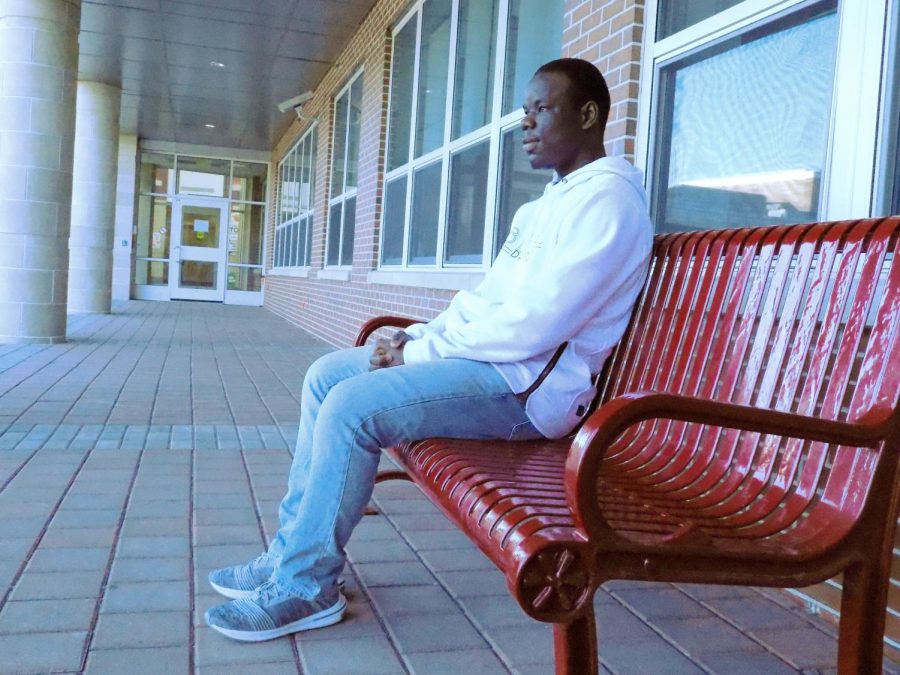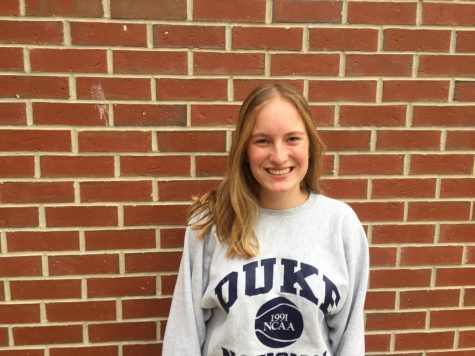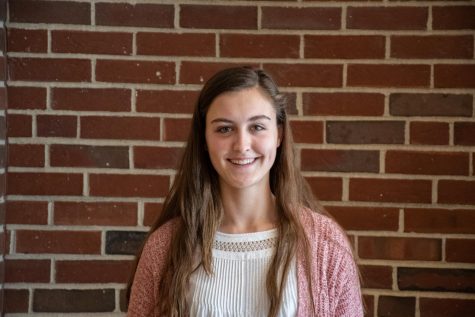Working in a new world
Senior Abbass Kamara finds his place at Algonquin after emigrating from West Africa
Senior Abbass Kamara works diligently to support his family after immigrating to Northborough from Sierra Leone.
May 6, 2019
Many Algonquin students will never know the fear of not having enough food, or being terrified to go to school. Most will also not have to worry about working a full-time job to help support their family while they are still in high school.
That is not the reality for senior Abbass Kamara, who emigrated to Northborough from Sierra Leone with his father last August in hopes of helping the rest of his family that stayed behind.
Sierra Leone is a West African country that according to the 2019 Index of Economic Freedom is well below the world average in economic freedom based on its labor and business freedom and its government integrity. Currently, there are minimal jobs, a famine and major environmental degradation.
According to Kamara, one of the worst parts of his experience living in Sierra Leone was not just the school conditions, which lacked common parts of the American system like classes in STEM fields, but the way teachers treated students.
“They hurt children,” Kamara said. “They used woods [paddles] to hurt children. Anything the teachers could get their hands on they’d [be] hitting students with…It was out of anger and spite.”
Since starting at Algonquin at the beginning of this school year, Kamara has noticed a stark contrast from the teachers in Sierra Leone.
“Here, they treat me in a nice way,” Kamara said. “They talk to you kindly, help you with any kind of work you need.”
Because of the lack of math and science courses in Sierra Leone, Kamara has had the toughest time not only in those classes, but also with the math and biology MCAS. According to Kamara, the biology MCAS almost felt as if it was a completely different language.
Kamara also dealt with Sierra Leone’s food shortage which, according to the World Food Programme, affects half of the population and is expected to worsen due to the country’s vulnerability to climate change.
“Finding out what to eat in the morning was hard,” Kamara said. “Some people died of hunger.”
In order to help support his father here and his extended family back in Sierra Leone, Kamara, who is 18,works 46 hours a week at Wendy’s. Kamara uses his earnings to help pay bills here and support his mother, uncles and siblings abroad. Currently, Kamara speaks with them about once a month and has plans to go back to Sierra Leone this summer with his father to visit his grandmother.
In the little free time he has, Kamara watches African movies and comedians.
According to math teacher Eileen Palmer, Kamara’s first semester Drama class helped him in his transition to Algonquin.
“[Fine and Performing Arts teacher Maura] Morrison was really encouraging him to demonstrate all of his eternal joy and be himself, and he used to come from Drama to math, and when he came into math after being in Drama, he was all excited and fired up,” Palmer said. “It gave myself and the other students a really good opportunity to know who he was because he had all of these creative juices from the Drama class.”
“[When the class started] he was incredibly quiet; he barely spoke,” Morrison said. “He would get on stage, but he wouldn’t participate, he wouldn’t raise his hand to go up; I would have to call him to go up….Towards the end of the semester, he was someone that you would have to tell him to get off stage.”
“He completely changed,” Morrison said. ””He was incredibly quiet and then he became very animated and he became very friendly with people.”
Since coming to Algonquin, Kamara believes the community has welcomed him with open arms.
“I have a lot of friends,” Kamara said. “I don’t know people by name, but I have a lot.”
Some of Kamara’s teachers have noticed that since coming here, Kamara has warmed up to Algonquin.
“I think he’s made some good connections with his teachers and he often fist bumps me or another teacher in the hallway, so I think he’s pretty comfortable,” English Language Learning teacher Jen Cuker said.
Even with this welcoming community, Palmer hopes that Kamara’s story can show students the realities of the world that most do not face in this community.
“Abbass doesn’t have a car,” Palmer said. “He doesn’t have a license. He does not have all of his MCAS work done. He’s still trying to make friends. So I’d like the Algonquin student body to recognize that there are students from other countries that are coming to Algonquin, that are transitioning, and they could use a hand. Or they could use a friendly face or a smile because there’s some great kids.”












